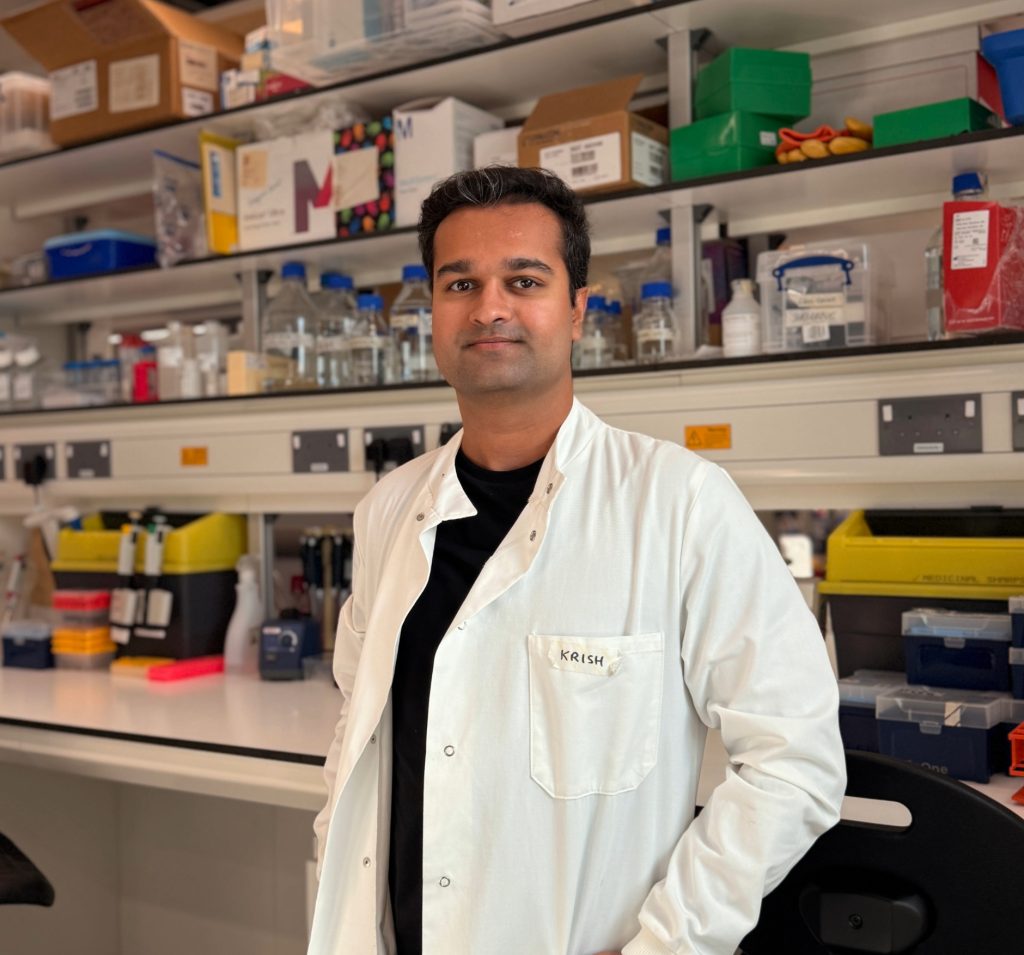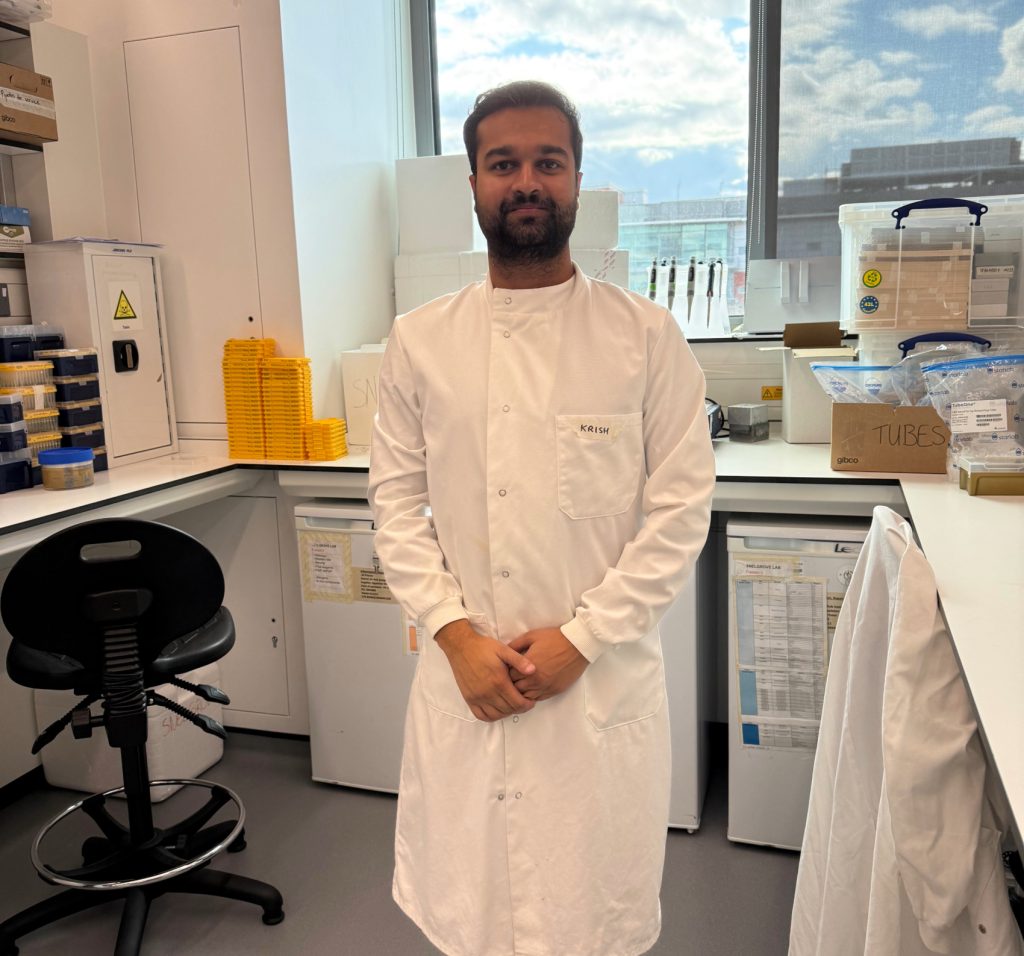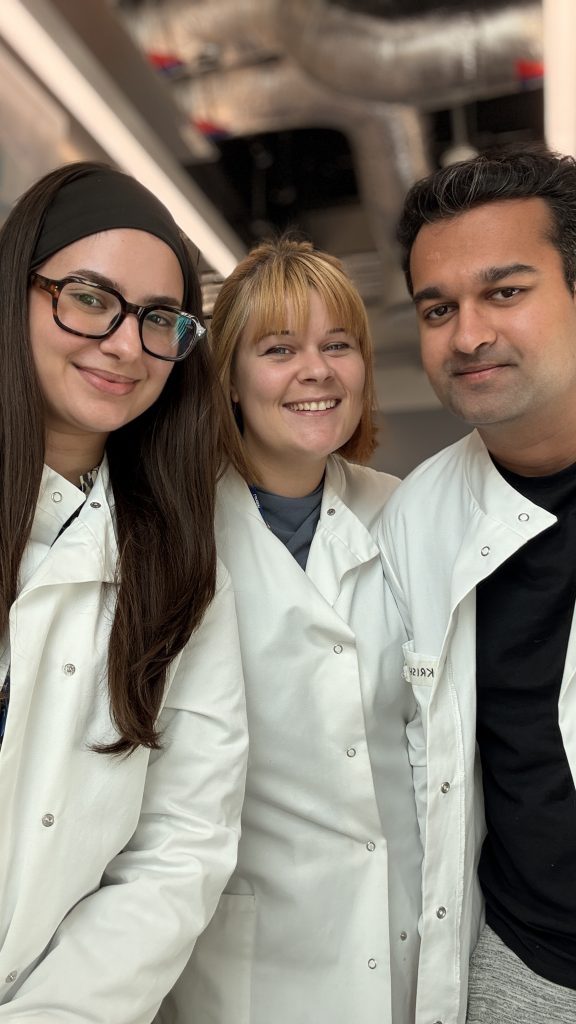“The intellectual challenge, the varied nature of the work, and mostly the opportunity to discover new things and contribute to advancements that could one day affect people’s lives are really what drew me into research.”

Meet Krish Sanghavi, a PhD student and part of the Snelgrove Lab at Imperial’s National Heart and Lung Institute (NHLI), whose journey into research took a turn from an early ambition to study medicine. Inspired by hands-on lab work during his undergraduate and Master’s projects, Krish discovered a passion for scientific discovery and the intellectual challenge of research. Now immersed in the world of immunology and data analysis, he shares insights into the highs, hurdles, and hopes of life as a PhD student.
Can you tell us a bit about your background and what led you to pursue a PhD?
I initially didn’t want to do research. I was actually aiming to pursue a career in medicine. However, my experience during my final year undergraduate research project and even more so during my Master’s research project really swayed my experience, and I started to really love being in the lab and doing research. I think the intellectual challenge, the varied nature of the work, and mostly the opportunity to discover new things and contribute to advancements that could one day affect people’s lives are really what drew me into research.
What has been the most rewarding or exciting part of your research so far?
I think there are several milestones for me that stand out as helping me progress on my journey as a scientist – whether it’s obtaining an animal license to do mouse work and becoming more independent with the mouse work, being able to run a flow cytometer all by myself, or learning to code R scripts and becoming better at critically analysing my data. Of course, the most rewarding parts I feel are when your experiments support your hypotheses, but even when your result is something different from what you expect, it’s still interesting because you start to question things, think critically, and develop as a scientist.

Have you encountered any challenges during your PhD journey?
Managing the workload can be a big challenge during a PhD – especially at the beginning and as you start to become more independent. I know many PhD students who initially struggle with this. One thing I do is plan out my week every Friday so that I know exactly what I need to do going into the next week and can try to plan my time accordingly. Inevitably, tasks will come up during the week that you did not anticipate, but you learn how to prioritise as you go on in your PhD.
What does a typical day (or week) look like for you as a PhD student?
Managing your time as a PhD student can be extremely challenging. It’s easy to forget that, beyond the PhD, you have a million other things going on in your personal life, and it can be really easy to neglect your health. For me, a typical day varies depending on where I am with my project and what experiments I am doing. Some days I may be in as early as 7 am and leave as late as 9pm, and alongside my PhD work, I also tutor. But I do also make sure I spend time with my friends at least twice a week, try and eat healthy, and get plenty of sleep.
How have your relationships with your supervisor, peers, or the wider academic community influenced your experience?
You spend a lot of time with other members of the lab, so I think they’re instrumental in shaping your experience during your PhD. I’ve been lucky to have supervisors who continuously challenge me scientifically, helping me to become a better scientist. I’ve also been extremely lucky to be in the NHLI, where everyone – regardless of academic role – is ready to help with any questions I may have. The NHLI also has so many experts in different fields with so many opportunities for networking – if you have a problem, chances are someone within the department has been there, done that, and has the solution. I’m particularly thankful to Rhianna and Megan (our amazing postdocs) and Viola (our talented research technician) who are not only fellow lab members that are always ready to help if I don’t understand something or need help with an experiment, but are also some of the closest friends I’ve made during my PhD who have supported me mentally through my PhD.

What are your thoughts on what comes next after the PhD?
I love the science and research that I do. The varied nature of science makes it exciting – no day is boring. So I’m hopeful to continue a career in research. While I enjoy academia, I am also intrigued by industry, as I have never had the experience of an industry job. I’m not certain what the future holds in terms of career path, but I’m excited to see what happens.
Find out more about Postgraduate Research at NHLI.